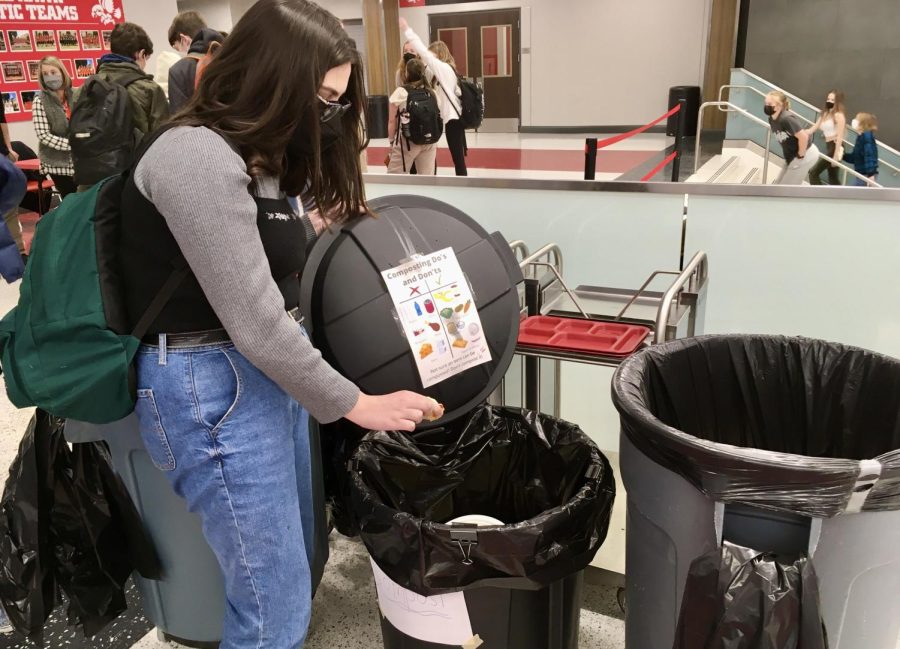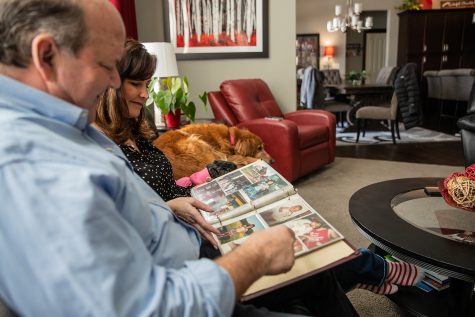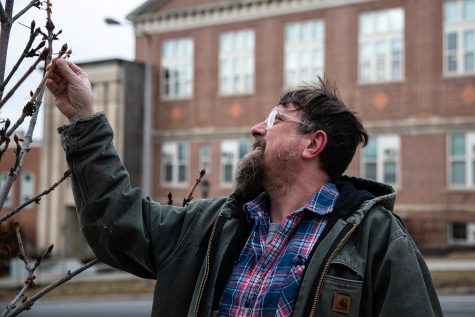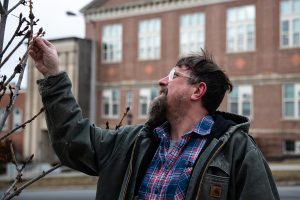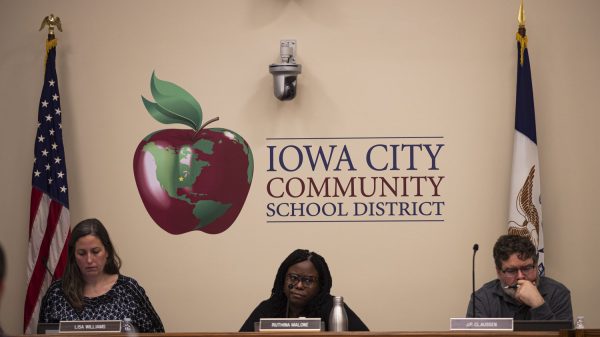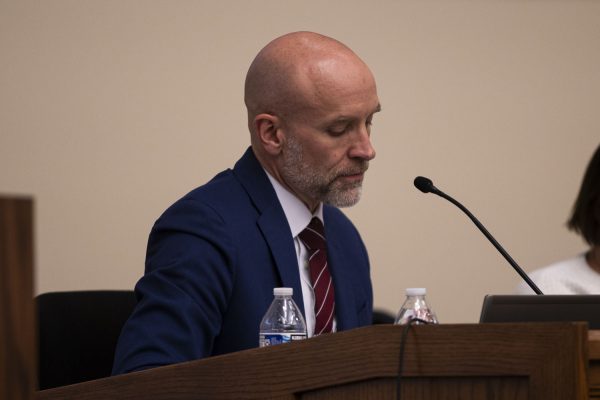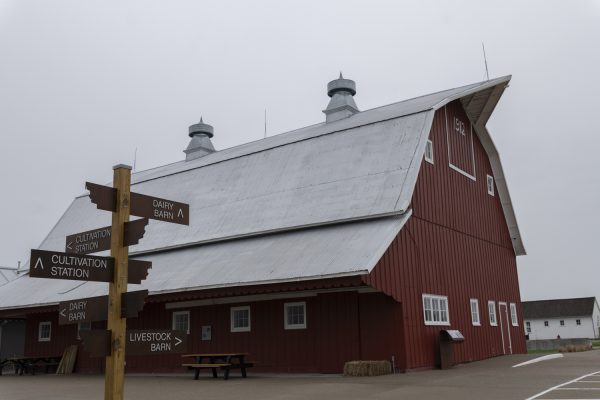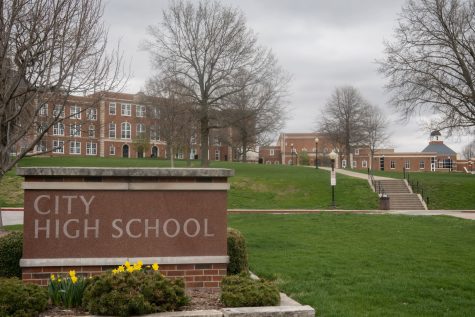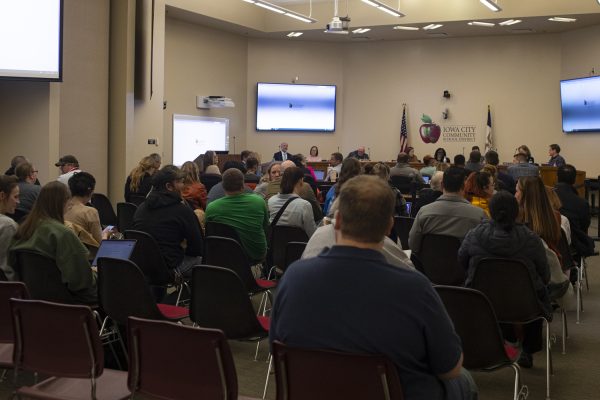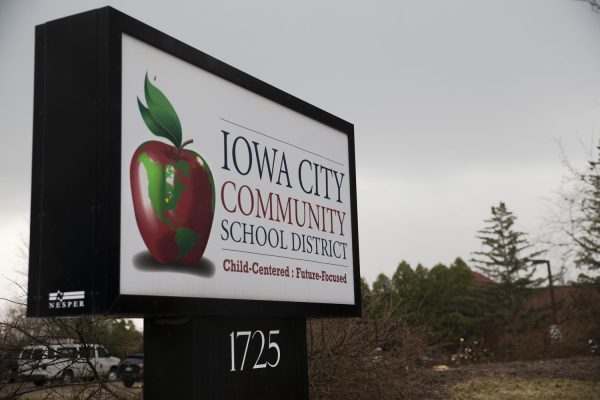Iowa City High School students implement composting program
Iowa City High School Environmental and Garden Club launched a compost program last fall to minimize cafeteria food in landfills.
February 13, 2022
Iowa City High School’s Environmental and Garden Club has launched a composting program for food in the lunchrooms to reduce food in landfills.
In August 2021, at the beginning of this academic year, City High students started to look at methods for composting, splitting responsibilities between each member and reaching out to other schools that practice composting.
About 10 students participate in the compost program.
Mary Lestina, City High science teacher and club organizer, said students really saw the need to reduce the amount of waste going into the landfill that didn’t need to be.
“Our district has made some changes to our paper plates and food boats we use,” she said. “These are now able to be put into the compost bins and not the trash bins.”
Lestina said the students set up and remove the compost bins every day, and make sure everything is clean and ready for the next day.
She said students were able to get funding from the Student Senate Program for the first month of composting.
“The cost of composting costs up to $250 a month for Johnson County Refuse to take food waste back to their facility to compost it and turn it into soil as the final product,” she said.
Lestina said the composting process is more sustainable than sending the waste to the landfill.
The student organization will apply for a grant through the Iowa City Community School District Foundation to continue the program for the next three years, she said.
Lestina and the students hope to demonstrate the need and importance that students really want to make a difference.
“Hopefully the district will see that this is a need, and to make composting more of a priority,” she said. “We hope our program can help demonstrate this. It would be amazing if we could even incorporate it into the district’s budget as well.”
Lestina said the Environmental and Garden Club is working on an informational video to promote the program in the school.
“I think education is key right now. We have some barriers because there are things in the lunch that are not compostable, such as foil-lined packets and plastic bags,” she said. “The food waste and greasy cardboard is then composted and turned into soil, which can be used to benefit our community as well.”
Elizabeth K. Mackenzie, University of Iowa sustainability program manager, said organic materials that can be composted generally make up 30 percent of the waste stream.
“The earlier students can engage in that practice, the better prepared they will be to participate in those activities wherever they encounter them,” she said.
The UI also allows for composting at residence hall market places and offers composting bins to people living in residence halls. Since beginning in 2007, the program has composted 800,000 pounds of food waste a year, according to the Office of Sustainability’s website.
Scott Jespersen, secondary assistant principal at City High, said the club planned to start the program a few years ago before the COVID-19 pandemic.
“COVID changed everything, and that was really a conversation that was shelved because of all the different mandates and restrictions,” he said.
Jespersen said there are COVID-19 guidelines for the compost program — special liners that go into the collection bins and can be sealed up and put out to the curb to make the process hands-off.
He said there were a few logistical challenges, including the pandemic and the education process, and how to collect the composted material.
“It’s pretty specific. You really have to be able to almost man the disposal at lunch so that people don’t always know what identifies as compost and what does not,” Jespersen said.
Jespersen said the next challenge was was to have an area easily accessible to move the compost material and to also secure it until it can be picked up.
“I am impressed by and really take pride in the school,” he said. “Our curriculum at City High infuses that and into biology and AP environmental science and other areas.”



